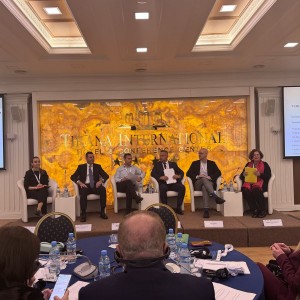News
03 June 2022 |News
ILO ESAP 2: Sharing solutions to challenges faces by the Inspectorates in the Western Balkans

Participants of the Regional meeting of labour inspectorates in Sarajevo, May 30-31, 2022
Regional Meeting of Labour Inspectorates of the Western Balkans organised under the framework of Employment and Social Affairs Platform (ESAP 2), financed by the European Union and implemented by International Labour Organisation (ILO), continued on May 31, 2022 with a number of presentations dedicated to providing ideas and solutions to challenges faced by the Inspectorates in addressing informal employment and undeclared work.

Photo: Maria Jose Chamorro and Javier Barbero
The day kicked off with Javier Barbero, ILO Senior Technical Specialist in Labour Administration, reflecting on the work done on the previous day on regional guidelines of labour inspection with focus on undeclared work. He stressed that the overall approval expressed by all participating labour inspectorates is very positive for the region, because now they have a common blueprint to determine the activities and implement them.
Maria Jose Chamorro, ILO Formalization and Gender Equality Specialist, spoke on ILO Recommendation concerning the transition from the informal to the formal economy (R 204). Mrs. Chamorro gave an overview of the ILO’s service offers to address informality in the region which include 1) tested tailor-made packages to overcome informality in a specific industry or sector; 2) behavioural change campaigns using rigorous testing and evaluating impact; 3) customised technical assistance and tools to support informative and punitive actions taken by labour inspectors to tackle informality; and 4) producing evidence for policymaking by carrying out monitoring and evaluation studies of the initiatives that have been completed.
Meeting continued with the presentation of two cases of ILO good practice in addressing undeclared work through support of labour inspectorates. Mr. Barbero introduced the case of Greece, while Sofia Lytvyn, ILO external collaborator, presented the case of Ukraine.

Photo: Presentation of Sofia Lytvyn
In her presentation, Mrs. Lytvyn emphasized the need to conduct extensive communications campaign in addressing undeclared work to reach wide audiences. Furthermore, improved soft and communication skills of labour inspectors can positively affect employers’ perception of the inspectors and their respective institutions.
Albana Kuka, Head of Risk Analysis Sector at the Albanian Labour Inspectorate and Social Services (ASLISS), spoke about using technology to improve the quality of inspection, relations with employers and increase the inspectorate’s capacity to address undeclared work. ASLISS developed “Awareness Raising Platform”, a web-based application system, accessible by inspectors and employers, was upgraded with the support of the ILO and the ESAP 2 project. On the one side, this application allows inspectors to propose sanctions as foreseen by the Albanian legislation and proportional to the violation, thus reducing unfair treatment of employers or mistakes by the inspectors. On the other side, it provides employers with a source of information about standards they must meet and consequences for non-compliance. The ESAP 2 support for the development of a risk assessment tool with data mining capability is expected to improve inspection planning, effectiveness and efficiency in general and specifically in uncovering undeclared work.

Photo: Albana Kuka
Presentation of Vesna Tomovska, Director of the North Macedonian Labour Inspectorate, aimed at showing the best practices of cooperation between Stare Labour Inspectorate of North Macedonia and ILO in the fight against informal work by preparing an E-training platform for inspectors. The platform increases knowledge and skills in recognizing the indicators of undeclared work, thus making inspections more efficient in achieving the goals.

Photo: Vesna Tomovska
The presentations of the second day were completed with the online delivery from Juan Chacaltana, ILO Senior Employment Specialist, who introduced results of research and evaluations conducted on informal employment and undeclared work in Latin America and the Caribbean. This presentation echoed the guidelines’ and discussions’ shared message that integrated approaches, that balance well deterrence with incentives and are conducted in close collaboration with other institutions, are most effective in reducing informal employment and undeclared work.
At the end, the participants proposed that Labour Inspectorates in the Western Balkans should:
-
Intensify their work on informal employment and undeclared work.
-
Develop cross-border cooperation through joint inspections, training, and data sharing.
-
Implement the regional guidelines of labour inspection on undeclared work.
Read more about first day of the meeting here.
Agenda of the meeting, can be found here.





